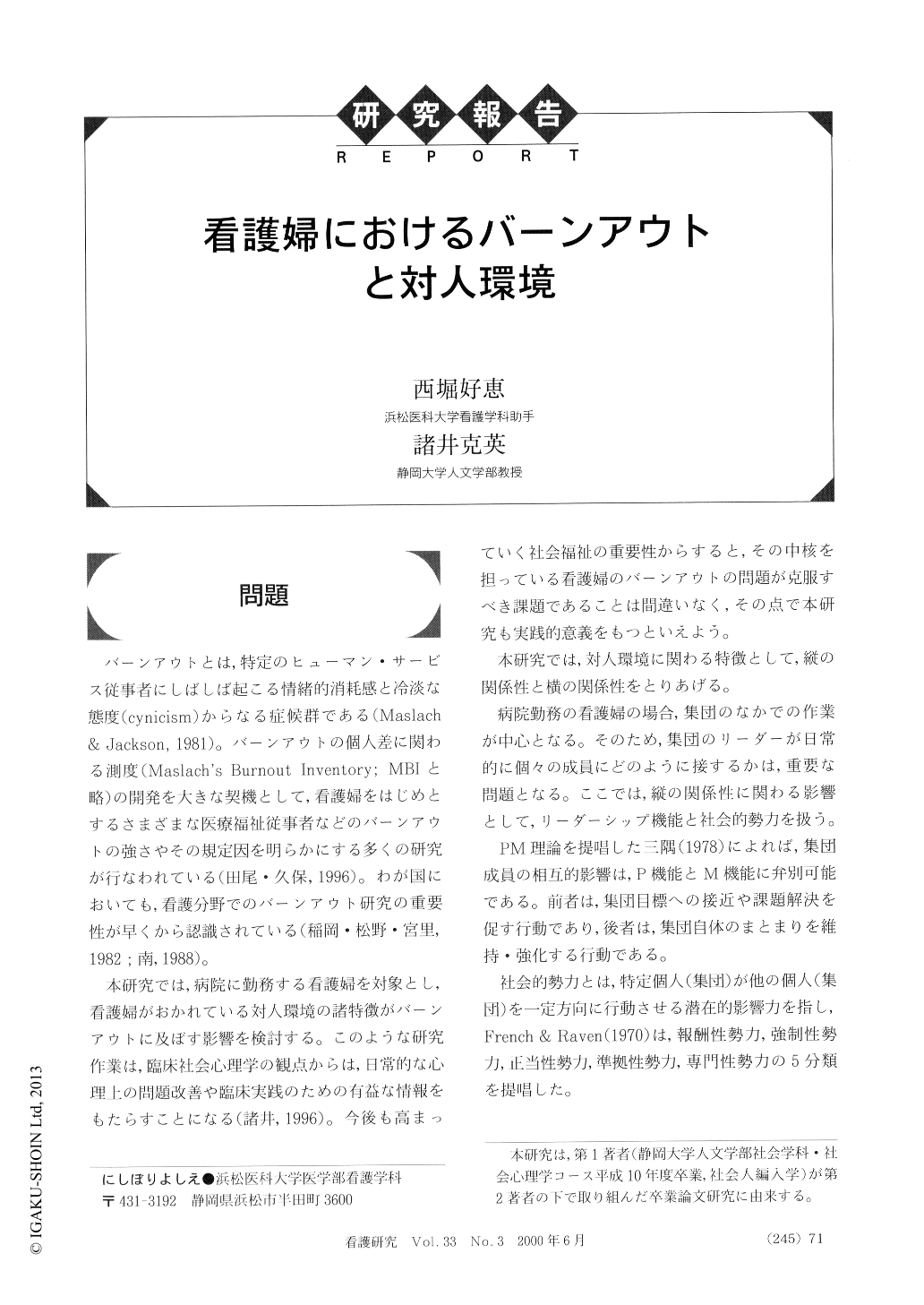Japanese
English
- 有料閲覧
- Abstract 文献概要
- 1ページ目 Look Inside
- サイト内被引用 Cited by
問題
バーンアウトとは,特定のヒューマン・サービス従事者にしばしば起こる情緒的消耗感と冷淡な態度(cynicism)からなる症候群である(Maslach & Jackson,1981)。バーンアウトの個人差に関わる測度(Maslach's Burnout Inventory;MBIと略)の開発を大きな契機として,看護婦をはじめとするさまざまな医療福祉従事者などのバーンアウトの強さやその規定因を明らかにする多くの研究が行なわれている(田尾・久保,1996)。わが国においても,看護分野でのバーンアウト研究の重要性が早くから認識されている(稲岡・松野・宮里,1982;南,1988)。
本研究では,病院に勤務する看護婦を対象とし,看護婦がおかれている対人環境の諸特徴がバーンアウトに及ぼす影響を検討する。このような研究作業は,臨床社会心理学の観点からは,日常的な心理上の問題改善や臨床実践のための有益な情報をもたらすことになる(諸井,1996)。今後も高まっていく社会福祉の重要性からすると,その中核を担っている看護婦のバーンアウトの問題が克服すべき課題であることは間違いなく,その点で本研究も実践的意義をもつといえよう。
The present study examined (1) the factor structure of burnout, and (2) the relationship between burnout and interpersonal environment. Questionnaires were administered to nurses working in the public hospitals. They completed the Maslach Burnout Inventory (MBI), the Group Cohesiveness Scale, the P-M Leadership Scale, and the Social Power Scale. As predicted, the principal-components analysis of MBI yielded three components; emotional exhaustion, depersonalization, reduced personal accomplishment. For interpersonal environment scales, the principal-components analyses were executed.
The multiple regression analyses indicated that each score of burnout was predicted significantly by interpersonal environment variables. The significance of interpersonal environment on burnout was discussed.

Copyright © 2000, Igaku-Shoin Ltd. All rights reserved.


